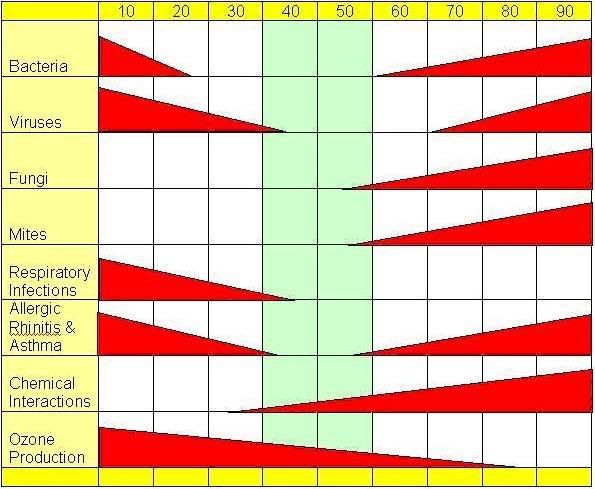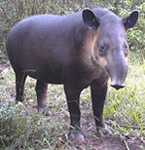Areas of low humidity
Areas of low humidity
Please don't confuse this with my previous message. It's a totally different topic not involving CPAP therapy. It has nothing to do with the humidifier with the CPAP. I will use the word humidity which is the humidity in the air not with CPAP in this topic. I've noticed something, I was wondering if someone can relate. I noticed that when I sleep in an area that has higher humidity between 70-80, I don't get as good as quality sleep compared to areas that have much lower humidity say from 30-50. Again, this is without the CPAP. For 3 nights in a row I slept in an area that had the humidity around 45, I slept and felt way better in the morning compared to the 75% humidity areas, in which I woke up feeling very tired, headaches, etc. not feeling good. Does this make sense to anyone. It happens everytime, I thought this was just a coincidence, but then I did it again a few days later, and sure enough I felt better in the lower humidity area.
Re: Areas of low humidity
So move.
I've lived in a humid area my whole life and I'm thinking of moving to a less humid area. I hate humidity and heat.
I always sleep better in the winter when it's cold than in the summer when it's h & h...LOL.
JeffH
I've lived in a humid area my whole life and I'm thinking of moving to a less humid area. I hate humidity and heat.
I always sleep better in the winter when it's cold than in the summer when it's h & h...LOL.
JeffH
Re: Areas of low humidity
So let me ask you this, is the humidity lower in the winter compared to the summer, if so what are the %s?
Re: Areas of low humidity
I've kept a log about the humidity. When I'm in an area of lower humidity, I sleep and feel way better each and every time. I'm convinced that the humidity effects the apnea tremendously. I bet if they did studies out there, that there are less people that have this apnea problem in lower humidity areas. It only makes sense that when the air is thick from moister, it's harder to sleep compared to when it's dry.
Re: Areas of low humidity
Makes sense to me. I live in a very low humidity area, even though I grew up in S.E. Nebraska......and (like Jeff) HATE that much humidity. However, unlike Jeff, I moved out here over 35 years ago.
Den
Den
(5) REMstar Autos w/C-Flex & (6) REMstar Pro 2 CPAPs w/C-Flex - Pressure Setting = 14 cm.
"Passover" Humidification - ResMed Ultra Mirage FF - Encore Pro w/Card Reader & MyEncore software - Chiroflow pillow
User since 05/14/05
"Passover" Humidification - ResMed Ultra Mirage FF - Encore Pro w/Card Reader & MyEncore software - Chiroflow pillow
User since 05/14/05
-
john_dozer
- Posts: 266
- Joined: Sun Sep 07, 2008 5:04 pm
Re: Areas of low humidity
Humidity affects oxygen/CO2 transfer in the lungs. So does temperature. From what I understand you get better oxygen transfer to cool dry air.
Also I find myself more likely to be on my side with my legs tucked up a bit to help stay warm when its cold and more likely to be spread out when its warm. Posture during sleep could affect the severity of apnea.
Also I find myself more likely to be on my side with my legs tucked up a bit to help stay warm when its cold and more likely to be spread out when its warm. Posture during sleep could affect the severity of apnea.
Re: Areas of low humidity
Smart man...LOLWulfman wrote:Makes sense to me. I live in a very low humidity area, even though I grew up in S.E. Nebraska......and (like Jeff) HATE that much humidity. However, unlike Jeff, I moved out here over 35 years ago.
Den
Re: Areas of low humidity
The higher the temperature, the more moisture can be carried in the air. Accordingly, air is less humid, drier, in colder temperatures.giantred wrote:So let me ask you this, is the humidity lower in the winter compared to the summer, if so what are the %s?
It was 109 degrees here today, will probably be around 85 overnight, and the air is a river in its own right. And we've got 3 more days of this to come.
K
Re: Areas of low humidity
It is very common to report sleeping better in normal or low humidity compared to high humidity. I have been enjoying the weather this winter in North Carolina and thinking about how I will not sleep nearly as well this summer in the high humidity. I have even considered going to stay with a friend in Rhode Island this summer. But my wife won't go and a few months without her and I would get in a lot of trouble having fun.giantred wrote:I've kept a log about the humidity. When I'm in an area of lower humidity, I sleep and feel way better each and every time. I'm convinced that the humidity effects the apnea tremendously. I bet if they did studies out there, that there are less people that have this apnea problem in lower humidity areas. It only makes sense that when the air is thick from moister, it's harder to sleep compared to when it's dry.
There are so many people who report this humidity/sleeping connection that I wonder if it is general and doesn't have anything to do with apnea. On the other hand, I believe that 30% of the total population has sleep apnea and more than 50% of the population over the age of 65.
Here is a chart showing a connection between health and humidity.
Optimum Relative Humidity Ranges for Healthier Indoor Air

In the chart, red means more of the bad things. So you can see indoor humidity in the 40s and 50s is best for health.
A subject for another discussion is dew point.I do believe that the dew point is a more accurate measure of how we sleep and feel. But science is stuck on relative humidity. I wish they would hurry and catch up with Snoredog.
Rooster
I have a vision that we will figure out an easy way to ensure that children develop wide, deep, healthy and attractive jaws and then obstructive sleep apnea becomes an obscure bit of history.https://www.youtube.com/watch?v=0ycw4uaX ... re=related
I have a vision that we will figure out an easy way to ensure that children develop wide, deep, healthy and attractive jaws and then obstructive sleep apnea becomes an obscure bit of history.https://www.youtube.com/watch?v=0ycw4uaX ... re=related















